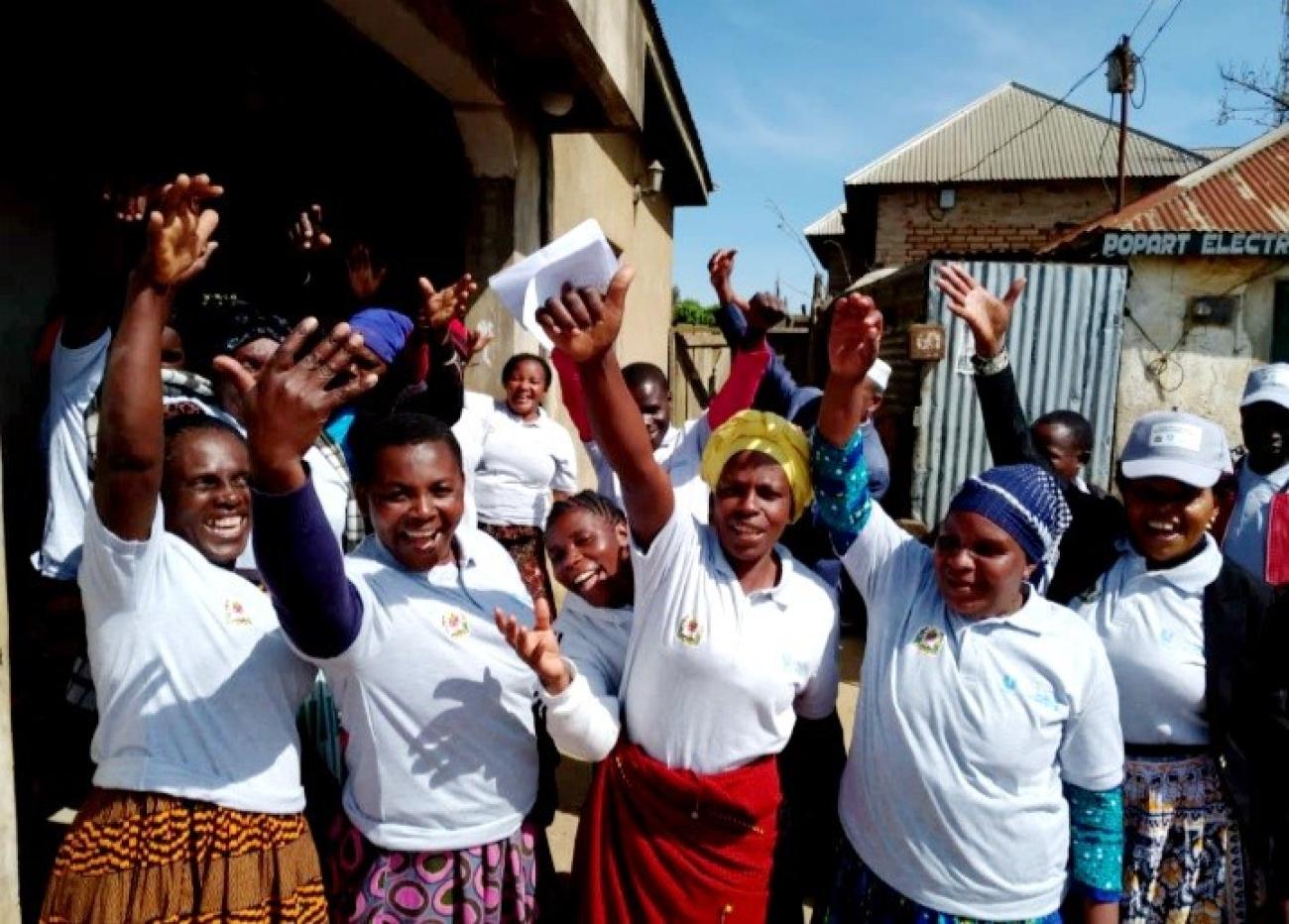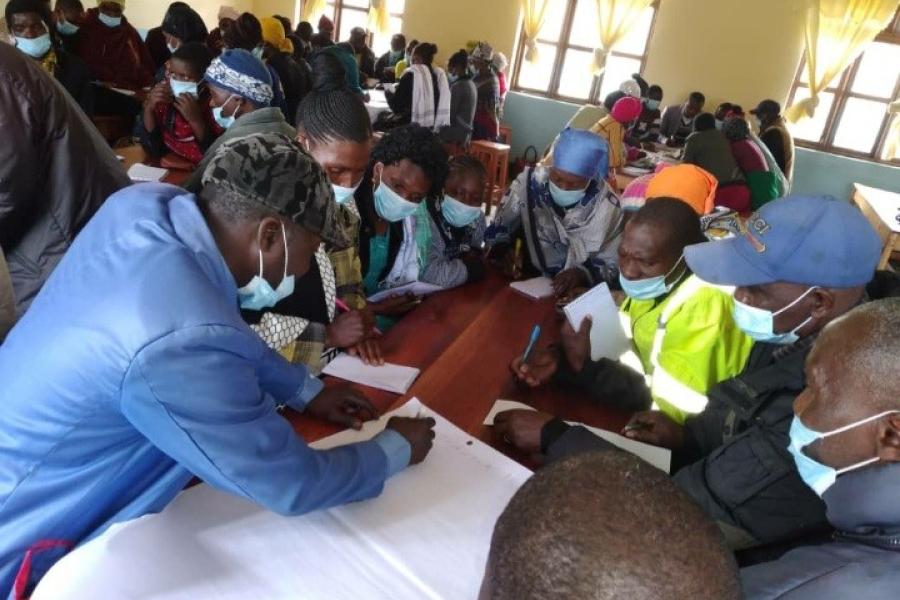UN Women Promotes the Rights of Rural Women

UN Women is working with the local government to develop the capacity of various influencers of change such as members of the local protection committees.
In the rural Mfindi, Iringa Region, UN Women is conducting a series of trainings to raise awareness on the rights of women and facilitate sharing of experiences and strategies to improve prevention and response to gender-based violence. Through these sessions, UN Women is working with the local government to develop the capacity of various influencers of change such as members of the local government protection committees and service providers for a gender-sensitive delivery to women and girls. Starting in May this year, the sessions have reached well over 500 participants, of whom 45 percent were women. Groups targeted were women and adolescent girls, beneficiaries of the Tanzania Social Action Fund (TASAF), local community authorities, traditional and religious leaders, community networks focusing on various areas of social and economic development, police, and health care providers.
The training also engaged people living with disabilities, upholding the UN principle of Leaving No One Behind. Some narratives show that women with disabilities are nearly twice as likely women without disabilities to have been sexually and emotionally abused.
The Programme Specialist for the UN Women Programme – Ending Violence against Women (EVAW), Ms. Lucy Tesha, said the trainings are also promoting innovations aimed at creating a more enabling environment for women to fully participate in economic activities, including working in safe markets and being able to access finance to start and grow their businesses. “Through these trainings, we are putting more emphasis on breaking the silence and reporting GBV cases, as well as supporting survivors to access essential services,” said Ms. Tesha.

She explained that although participants in all training sessions agreed that activities under the National Plan of Action to End Violence against Women and Children (2017-2022) were helping to raise awareness on the adverse effects of gender-based violence, they also proposed expanding actions to further improve the protection of women and girls.
“For example, key influencers of behaviour change, who include religious and traditional leaders, were cited as critical in transforming norms and practices that harm women and girls.” These practices, she said, include female genital mutilation, widow inheritance and child marriage. “We have heard from participants from areas such as Igowole, Kasanga, Mninga, Mdabulo, Luhunga, Mtwango and Ifwagi, who shared experiences from their communities and recommended upscaling interventions that focus more on providing free legal aid services. These are wards located in the eight tea estates of Unilever tea Plantations in Mufindi,” Ms. Tesha said.
She said other participants in the trainings called for more support to be channeled to ensure regular activities by traditional and religious leaders in collaboration with various service providers such as the police and legal experts. Within the framework of the Council of Traditional Leaders of Africa (COTLA), UN Women is working closely with traditional and religious leaders in Tanzania to strengthen their capacity to drive activities aimed at ending all harmful practices.
Through the EVAW programme, Ms. Tesha said UN Women is taking on board proposals by participants to train new community based anti-GBV Champions. “In this case we will target more young men and boys to promote positive attitudes towards women and girls. We are also planning to invest in door-to-door awareness raising campaigns to help break the silence and end protection of perpetrators of violence,” Ms. Tesha said.
Conducting regular community-based women’s rights awareness raising activities, targeting other farmers’ groups and networks of women, and supporting young women and out-of-school adolescent girls to form economic empowerment groups to be more productive and generate income for economic independence, also came under discussion.
Ms. Tesha said through the EVAW and other programmes, UN Women is supporting gender responsive policies and national programmes to improve the gender-sensitive delivery of all public services to women and girls.





